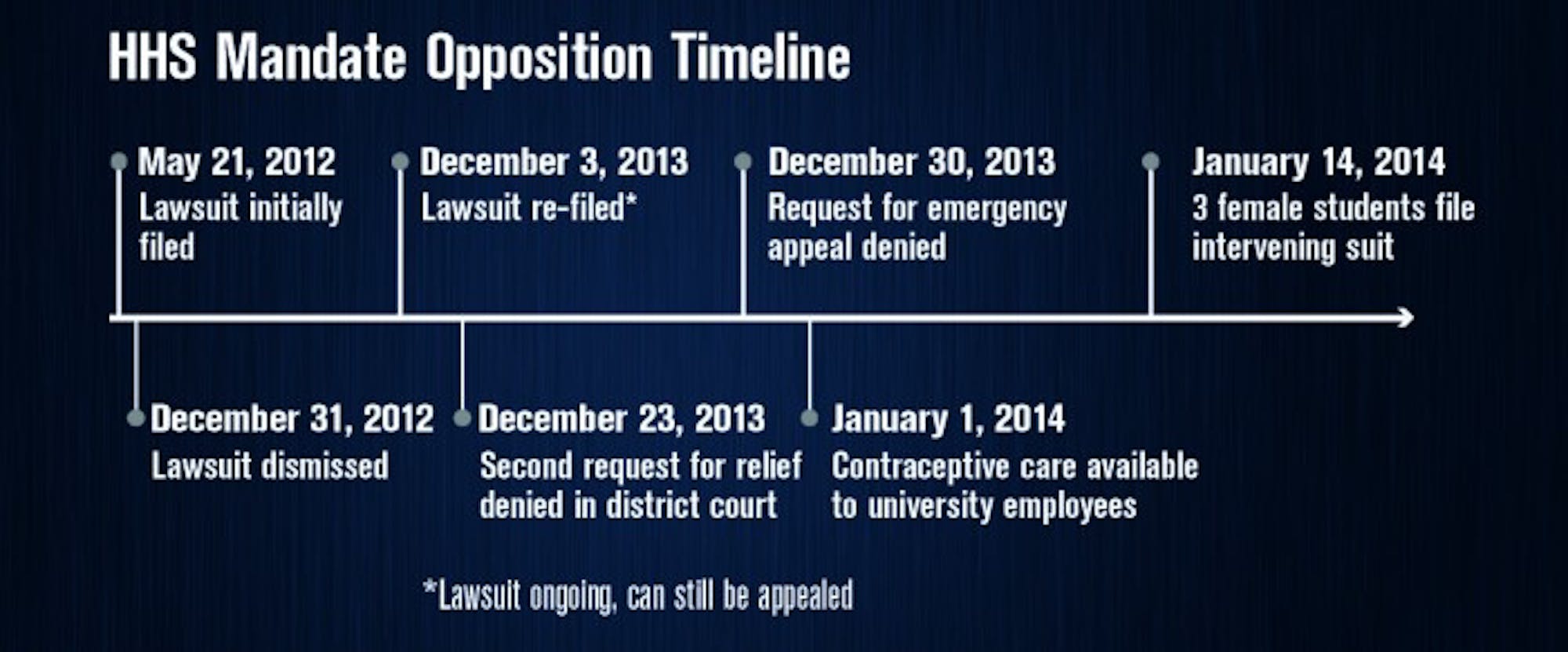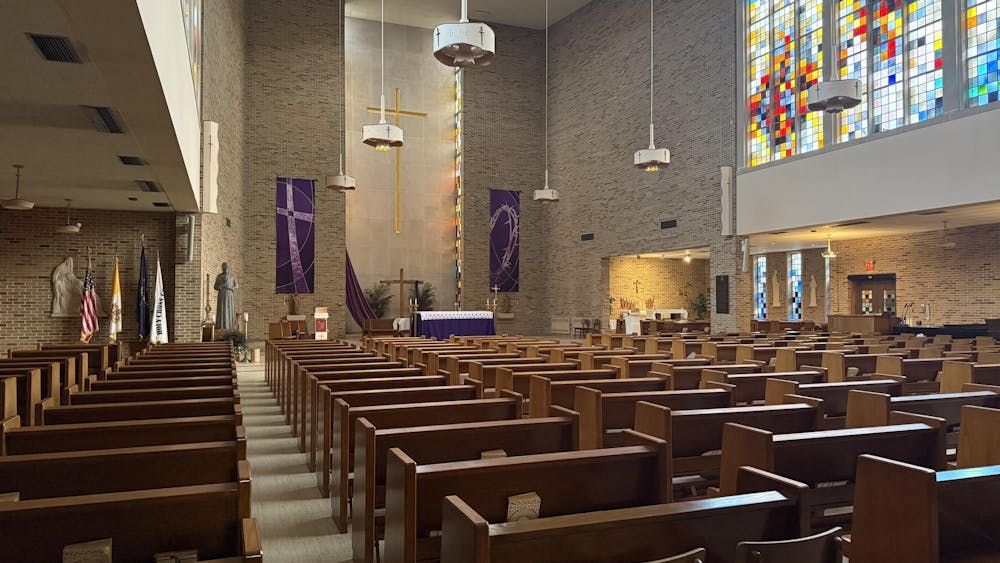Three students who want the University’s health care plans to cover birth control are intervening in Notre Dame’s lawsuit against the U.S. Department of Health and Human Services (HHS).
The U.S. Court of Appeals for the Seventh Circuit ruled Jan. 14 that the female students, who remain anonymous, can participate in the lawsuit, according to a report by the Associated Press.
The lawsuit challenges an HHS mandate that required nonprofit religious organizations to start to cover contraceptive services Jan. 1. Paul Browne, the University’s vice president for public affairs and communications, said Jan. 2 that Notre Dame is providing this coverage through its third-party insurance administrator.
Americans United for Separation of Church and Stateis representing the students, according to the organization’s director of communications, Rob Boston.
“We felt that, in this case, the voices of the parties who would be most affected by a loss of contraceptive access, largely women, were not being heard, and it was a possibility that their perspective might not be represented,” Boston said. “We filed this motion to intervene on behalf of these students, specifically so that their perspective would be heard by the court.
“We believe that if Notre Dame is allowed to deny contraceptives, it could negatively affect students, faculty and staff at the institution, so we feel that the courts should hear from them.”
Americans United’s legal director, Ayesha Khan, who is representing the women, said the result of the lawsuit will have important implications for the students.
“They will get funded contraception, or they will continue to have to pay for it out of pocket, and that’s of great importance to them because all three of them would like access to contraception, which they can’t afford right now,” Khan said.
Boston said Americans United’s intervention in the lawsuit is about people “losing important medical services.”
“The students are really looking at this more as an issue of their access to needed medication, more than they’re looking at it as a religious liberty question. And I think that’s what this is going to come down to in the courts.
“Is it a religious liberty matter, or is it a matter of people getting access to medication that they need? … Once those questions are settled, we’ll have some sort of a clearer understanding of how this is going to shake out.”
Browne said the lawsuit “is fundamentally about religious liberty, and only incidentally about contraceptive services.”
Khan said the students chose to be anonymous because they did not want to release information about intimate aspects of their lives.
“They were concerned about retaliation, both from the University and from the larger community,” she said.
Three students intervene in University lawsuit
STEPH WULZ | The Observer









